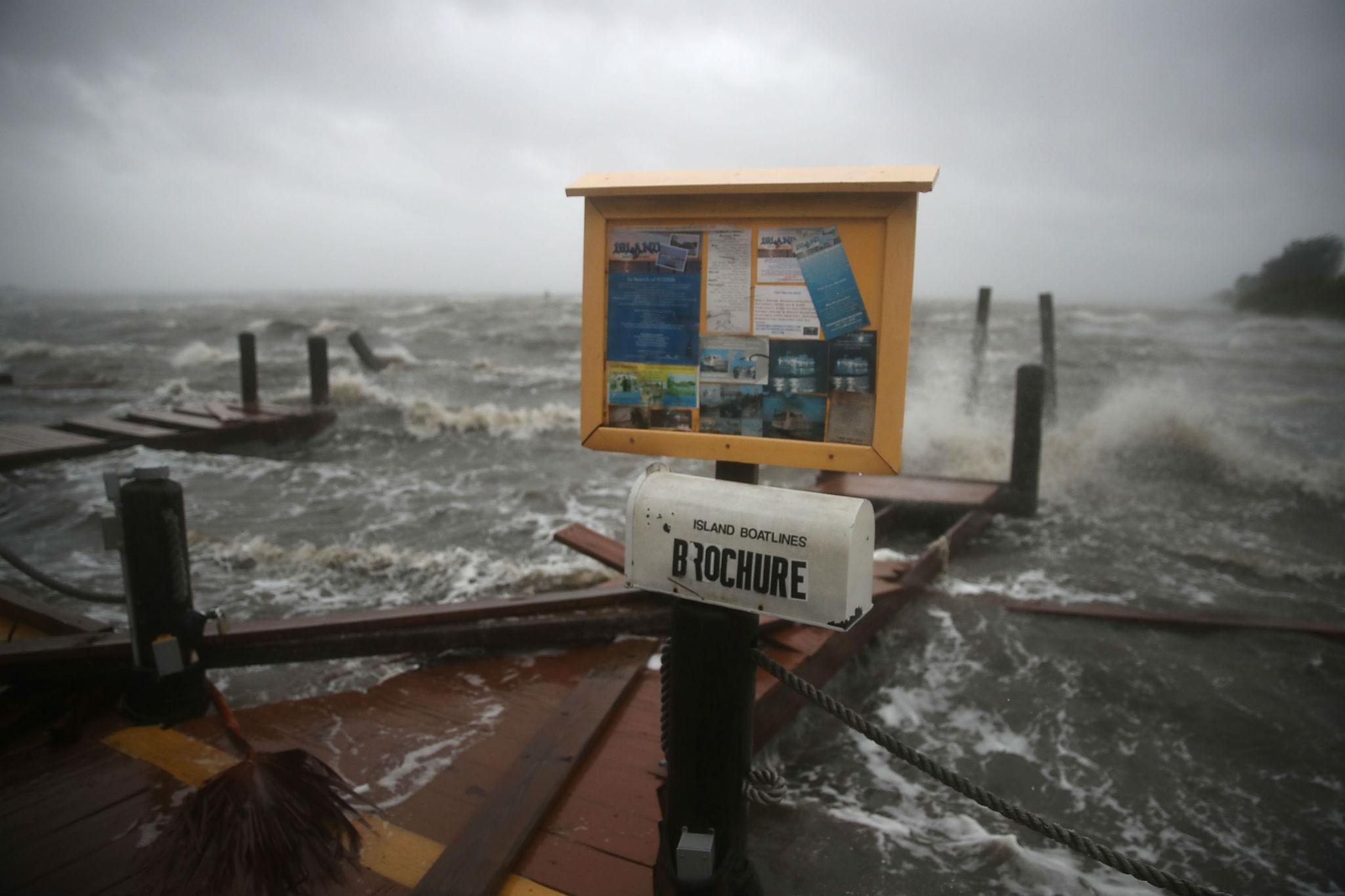Hurricane Matthew: downgraded storm batters Florida, with Georgia and South Carolina in the crosshairs
The storm, now a category 2 hurricane, has already claimed more than 800 lives in Haiti

Your support helps us to tell the story
This election is still a dead heat, according to most polls. In a fight with such wafer-thin margins, we need reporters on the ground talking to the people Trump and Harris are courting. Your support allows us to keep sending journalists to the story.
The Independent is trusted by 27 million Americans from across the entire political spectrum every month. Unlike many other quality news outlets, we choose not to lock you out of our reporting and analysis with paywalls. But quality journalism must still be paid for.
Help us keep bring these critical stories to light. Your support makes all the difference.
Hurricane Matthew has brought havoc to northeastern Florida, with high winds and heavy rain leaving at least four people dead and more than a million people without power as the storm continues its destructive march up the coast toward Georgia and North Carolina.
The storm, which has already killed more than 800 people in Haiti, was downgraded on Friday to a Category 2 hurricane. But forecasters warned it could still bring winds of more than 100mph, some 15 inches of rain and a 9ft storm surge that would threaten flooding along hundreds of miles the south-east US coastline. Such flooding was reported in coastal Florida communities including Daytona Beach and St Augustine on Friday.
After making its way through the Caribbean, striking Cuba and the Bahamas, Matthew largely spared southern Florida, remaining some 100 miles from the shore as it passed Miami and Fort Lauderdale late on Thursday. The eye of the storm was expected to grind north, pounding the coast of Georgia on Friday night and South Carolina on Saturday, as well as parts of southern North Carolina, before turning back into the Atlantic.
The northern Florida city of Jacksonville, with a population of almost 1.6 million, was the largest metropolitan area in Matthew’s crosshairs. During Friday the storm moved parallel to the coast, with its centre staying between 25 and 40 miles from shore, according to the Weather Channel. It remained unclear when and where it might make landfall, but Florida Governor Rick Scott warned that “It could be the worst part of this is still to come.”
Authorities have ordered some two million Floridians to evacuate their homes, while Governor Scott activated 3,500 members of the state’s National Guard. Patients from two waterfront hospitals and a nursing home close to Daytona Beach were moved to safer locations as thousands of people crammed into shelters and inland hotels.
President Barack Obama declared a state of emergency in Florida, Georgia and the Carolinas, meaning federal agencies will coordinate any relief efforts. On Friday, Mr Obama reiterated the advice of local officials for people to follow evacuation orders. “Do what they say. Do not be a holdout, because we can always replace property, but we can't replace lives,” he said.
On Thursday night, a 58-year-old woman died at her home in St Lucie County, Florida, following a heart attack. Emergency personnel were unable to reach her after cancelling operations due to the high winds. A second woman in her 60s was killed by a falling tree in Volusia County, while an 82-year-old man also died after falling unconscious with breathing difficulties while emergency services were unable to respond.
Fort Lauderdale, Jacksonville and Orlando airports were all closed on Friday, with at least 4,500 flights cancelled. Theme parks including Disney World, Universal Studios and SeaWorld were also shut. Though Nasa’s space shuttle fleet is no longer in service, the private firm SpaceX was concerned about possible damage to its seafront launch pad at the Kennedy Space Centre in Cape Canaveral, where gusts reached 107mph on Friday.
Join our commenting forum
Join thought-provoking conversations, follow other Independent readers and see their replies
Comments